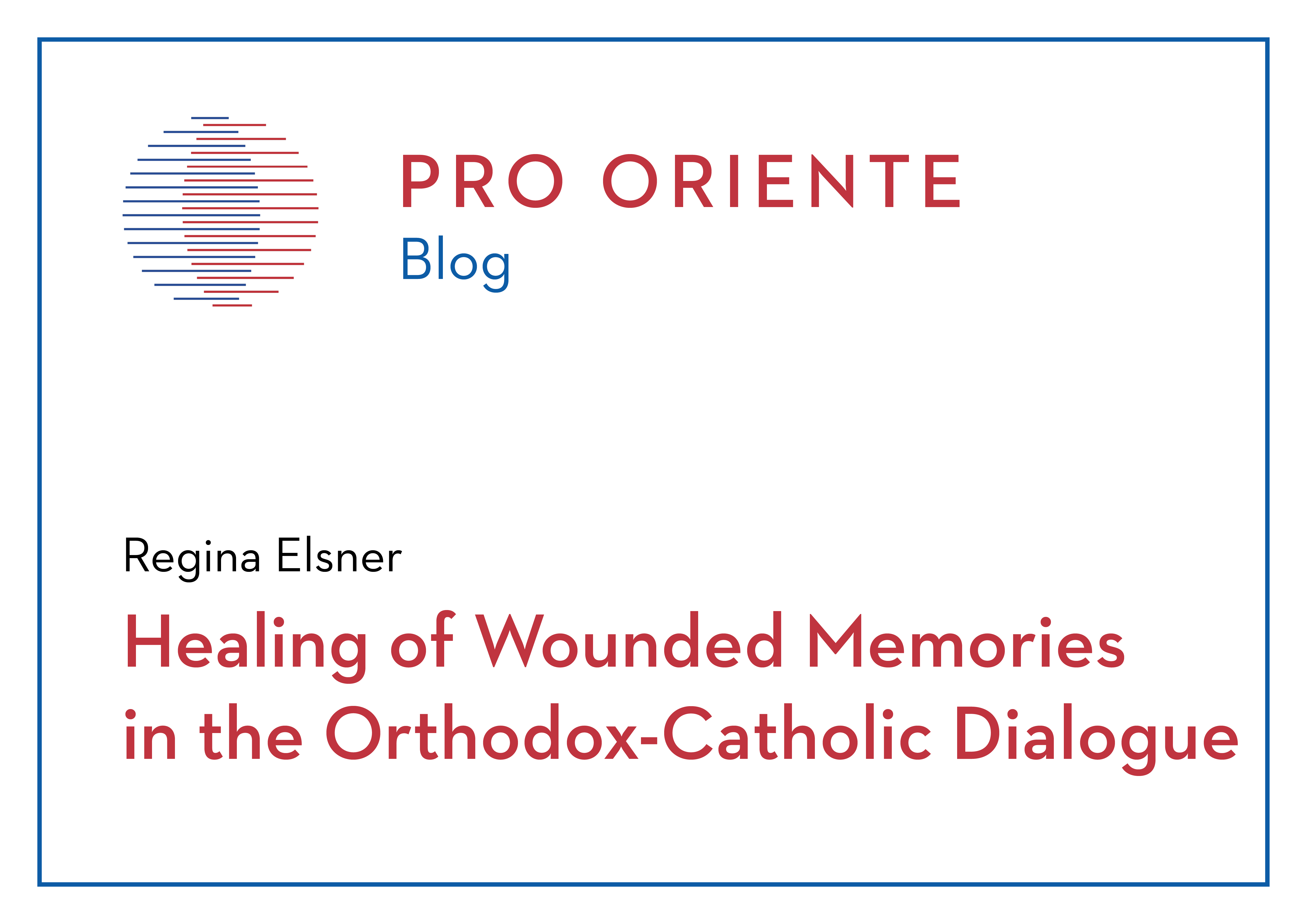Healing of Wounded Memories in the Orthodox-Catholic Dialogue
23. Januar 2024
Thema: Healing of Wounded Memories

In November 2018, a group of Orthodox and Catholic theologians met in Vienna to think about new impulses for the relations between their two churches. Orthodox-Catholic relations have been complex and challenging for most of their history. Apart, from the inspiring first years of the “Dialogue of Love” – the very personal and emotional encounters of the heads of the Ecumenical Patriarchate and the bishops of Rome – the last decades of ecumenical relations are shaped by demanding theological debates and skepticism in practical questions. How to overcome the crisis, how to transfer the convergence in theological debates into mutual trust among the faithful?
The analysis of the reasons and roots for ecumenical stagnation is as old as the ecumenical movement itself. The PRO ORIENTE Steering Committee for the Orthodox-Catholic Dialogue, which was founded in autumn 2018, picked up three of the challenges adhering to this stagnation: the lack of reception of the results of theological consensus, the difficult access to the documents and decisions on the official level, and the impact of unresolved traumatic experiences between the churches in concrete local contexts. While the first two aspects remain in the field of theological discourse and praxis, the third is linked to multiple non-theological factors. The impact of such non-theological factors on the ecumenical progress with a special focus on questions of identity has been discussed widely by the German ecumenists Peter Lengsfeld and Heinz-Günther Stobbe since 1980. However, ecumenical theology again and again tried to put the question of theological consensus and legitimate divergence in questions of dogma in the center and the official dialogue tried to exclude social and political questions to remain a proper theological encounter.
When the working group on “Healing of Wounded Memories” within the Orthodox-Catholic committee started to discuss their approach to the topic of traumatic historical experiences between the churches in 2018, we had the hope to talk about past events. We acknowledged that wars and violent conflicts in several regions shaped a deep mistrust between Catholic and Orthodox communities and churches, which annihilates all ecumenical successes. Accordingly, we envisaged a project, which would bring a new generation of active believers together in order to find new pathways to transitional justice and reconciliation. When we finally kicked off our project in November 2023, the world had changed dramatically. Two of our chosen regions – Eastern Europe and the Middle East – stood literally in flames, the third – Southeastern Europe – was shaken by renewed conflicts. We became witnesses of the actualization and emergence of new “wounded memories”, and, though by different degree, all were connected to a religious, ecumenical dimension.
Even if we would have tried to focus on some theoretical theological, historical, or methodological issue, we would have failed. Representatives of the churches from the regions made it impossible to hide from the daily shelling in Ukraine or the Holy Land, or from political repressions against believers and discrimination on religious reasons. How could we talk about reconciliation and healing in a situation where new wounds are inflicted every single moment? How to evoke the ecumenical vision in a situation where ecumenical relations are manipulated and instrumentalized to justify a war of aggression?
The notions of hope, reconciliation and peacemaking have been at the core of the ecumenical movement. It is rather uncommon to speak about hopelessness, pessimism, but also about justice, responsibility, and guilt in a non-spiritual way, meaning concrete effects for persons, structures, and institutions. With the first theological conference of the project “Healing of Wounded Memories”, these questions stood in the center of our reasoning. All speakers from different regions admitted that without a realistic and transparent joint assessment of the mistakes, impasses and desolation in ecumenical approaches to reconciliation no sustainable pathways to future processes could be opened. Remarkably, all participants underlined the necessity of an institutional responsibility of the churches for the participation in disseminating hatred, stereotypes and identitarian Othering.
The hope for sustainable processes of reconciliation, however, is not absent or obsolete. Besides the theological panels, which discussed the current challenges for traditional ecumenical paradigms like reconciliation, forgiveness or metanoia, regional panels illustrated local practices with the ability to overcome hatred and enmity on a very personal and grassroots level. Local action, thus, seems to be the very theological locus for thinking through the options and limits of healing wounded memories. This perspective encourages us to move to the local contexts and elaborate on concrete needs and opportunities, which may differ significantly from other contexts, even if the churches are from the same family. While for some context, the joint work on historical events or personalities as a form of memory culture may be most fruitful, others need to learn and agree upon methods for avoiding hate speech in the ecclesiastical sphere and public work. Grateful for the openness and willingness to contribute from the conference’s participants, the PRO ORIENTE Steering Committee looks very much forward to walking together in times of existential hardship for our societies and churches.



